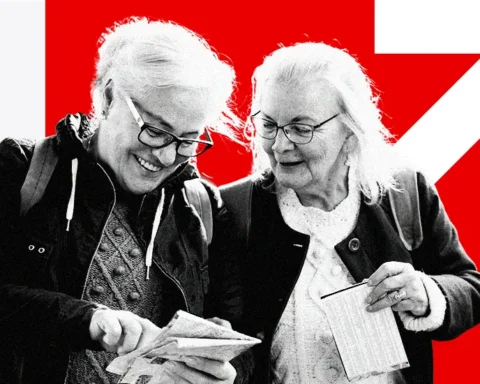The political climate in the United States continues to be a battleground for power and influence. Recently, Democratic strategists have urged Supreme Court Justice Sonia Sotomayor to consider retirement, sparking debates about politicizing such decisions. Daniel Suhr provides a compelling analysis of the situation, highlighting the various pressures and implications.
A Strategic Move: Democrats Eye the Future
The current political landscape has prompted some Democrats to push for Justice Sotomayor’s retirement. With President Joe Biden at 81 and questions about his capacity for another term, the urgency to secure a liberal Supreme Court seat has intensified. Democrats hold a slim 51-49 majority in the Senate, a margin that could quickly shift with upcoming elections. As Suhr explains, “Moderate Democrat Joe Manchin’s retirement in West Virginia is a likely GOP pickup,” with other seats in jeopardy, the stakes are high.
The Historical Lesson: Learning from the Past
Historical precedents play a significant role in the current discussions. Suhr points out that Democrats learned a harsh lesson with the passing of Justice Ruth Bader Ginsburg, who conservative Judge Amy Coney Barrett replaced during Trump’s presidency. Similarly, Republicans faced a close call with Antonin Scalia’s death, only to be saved by Trump’s unexpected victory and Mitch McConnell’s strategic hold on the seat. As Democratic Senator Richard Blumenthal remarked, “The old saying—graveyards are full of indispensable people.”
The Politics of Retirement: Sotomayor’s Dilemma
The pressure on Justice Sotomayor creates a complex dilemma. On one hand, Democratic leaders like Senator Sheldon Whitehouse suggest that a lesson can be learned from Justice Ginsburg’s experience, indicating that a timely retirement could prevent a conservative replacement. On the other hand, Suhr notes that such pressure could be counterproductive, stating, “The more pressure she comes under, the more she may push back in the name of judicial independence.”
The Bigger Picture: Power Over Principles
This situation underscores the ongoing struggle between power and principles in American politics. Suhr criticizes the inconsistency in political rhetoric, pointing out the arguments’ contradictions. He states, “The real lesson: never expect a politician to let consistency get in the way of the right talking point.” The debate over Sotomayor’s potential retirement is another example of how raw power politics often overshadow principled decision-making.
The calls for Justice Sonia Sotomayor’s retirement highlight the strategic maneuvers within the political arena, reflecting broader issues of power and influence. As this debate unfolds, it reminds us of the complex interplay between judicial independence and political strategy. In the end, the decision rests with Justice Sotomayor, who must weigh the competing factors and their implications for the future of the Supreme Court.







